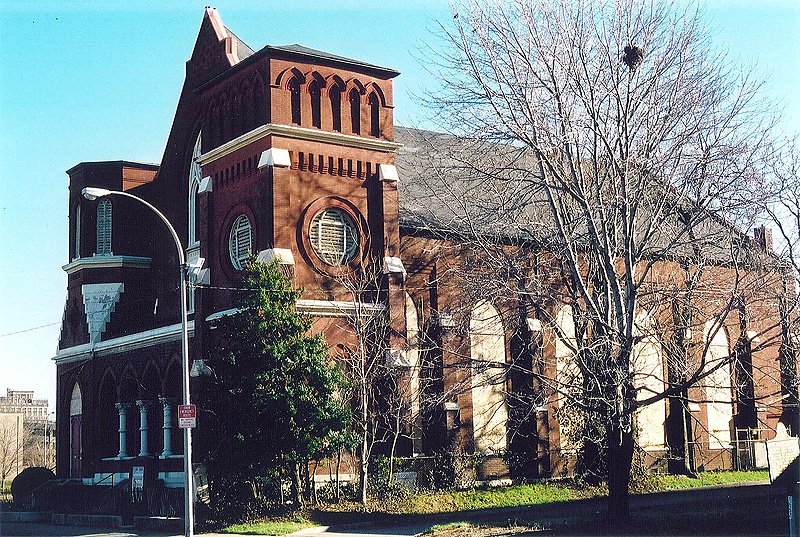
LOUISVILLE, Ky. — In recognition of its role in African American history and civil rights activism, Chestnut Street Baptist/Quinn Chapel African Methodist Episcopal (A.M.E.) Church in Louisville has been designated nationally significant by the National Register of Historic Places, administered by the National Park Service (NPS).
The church, located at 912 West Chestnut Street, was recognized in the nomination for its long history of social justice advocacy and early reputation as an “abolitionist church” along with its contributions to education and serving as a community meeting place. In the 1960s, the church was visited by icons such as Dr. Martin Luther King Jr. and Muhammad Ali, both of whom substantially helped advance the course of civil rights in Louisville and across the nation.
“The legacy of these great leaders who advocated for change through peaceful protest continues to resonate today and is especially timely given recent events forcing all of us to take a hard look at how our culture treats and values black and African American people,” said Gov. Andy Beshear. “We all recognize the changes in our institutions that need to happen, and I pledge this administration is working every day toward equity and justice.”
The National Register period of significance for Quinn Chapel is 1912-1967, when the bulk of Louisville’s civil rights actions took place. The church served as a mass meeting place for the National Association for the Advancement of Colored People (NAACP), as the organization pursued legal action against a Louisville segregation ordinance at the U.S. Supreme Court.
- IT’S FREE | Sign up for The Lane Report email business newsletter. Receive breaking Kentucky business news and updates daily. Click here to sign up
Quinn Chapel was also instrumental in integrating public accommodations and housing during the 1960s. Dr. King spoke at Quinn Chapel in 1961, and in May 1967 he led a demonstration at the church in support of open housing followed by a march through downtown prompting action for Louisville to pass an open housing ordinance the following December.
“Quinn Chapel has a significant history for its role in fostering equality, justice and peace during the civil rights movement in Kentucky,” said Tourism, Arts and Heritage Cabinet Secretary Mike Berry. “Today, we continue to learn from this history and the actions of civil rights advocates as Kentuckians come together to advocate for positive change and equality.”
The initial church was built in 1857, but was radically altered in 1866 when it became Chestnut Street Baptist Church. This original portion now makes up the south wing. In 1884, architect Henry Wolters designed and built a large structure in front of the first church and the original structure in the rear was converted for a Sunday school hall and other functions, with two additions built in later years.
Quinn Chapel has been vacant since 2002 but maintains much original historic fabric and integrity on both the interior and exterior. It is currently owned by the YMCA of Greater Louisville. The church has been stabilized with a $450,000 National Park Service Historic Preservation Fund grant from the African American Civil Rights Program awarded to Louisville Metro Government, with the city donating an additional $150,000 to the project through the Office of Redevelopment Strategies. In April 2020, NPS awarded Metro Louisville $500,000 for masonry stabilization.
Administered in Kentucky by the Kentucky Heritage Council/State Historic Preservation Office, the National Register of Historic Places is the nation’s official list of historic and archaeological resources deemed worthy of preservation. The designation is honorary and does not restrict property ownership rights, though it does provide a measure of protection against adverse impacts from federally funded projects.
For more information, visit heritage.ky.gov.




















Add Comment